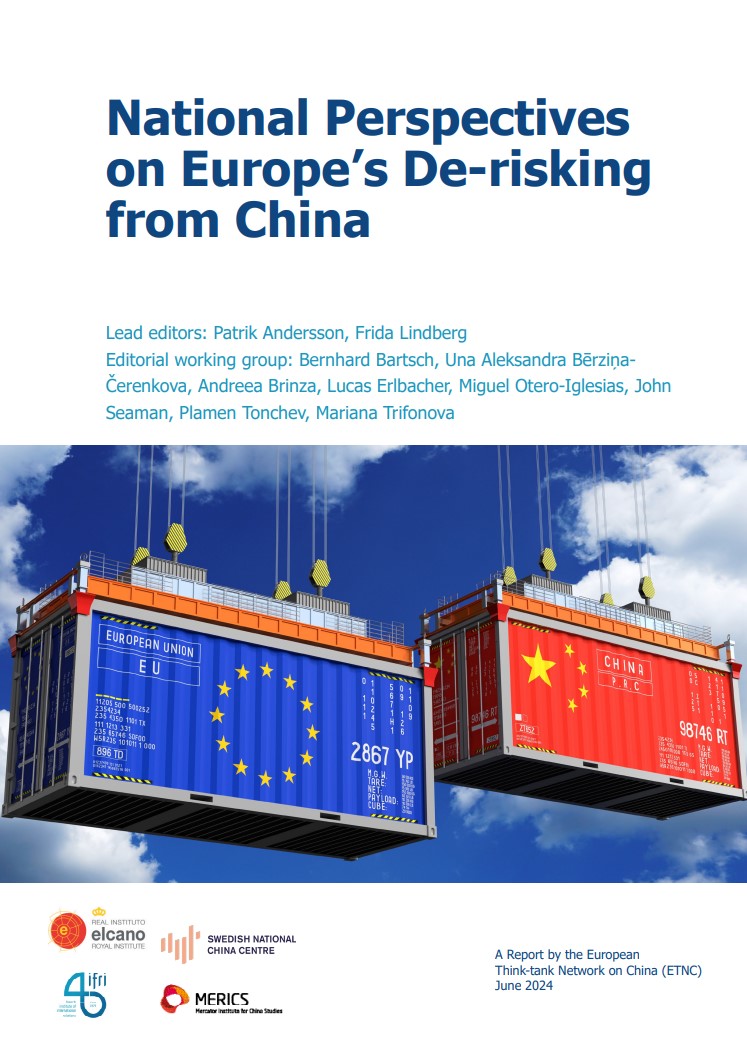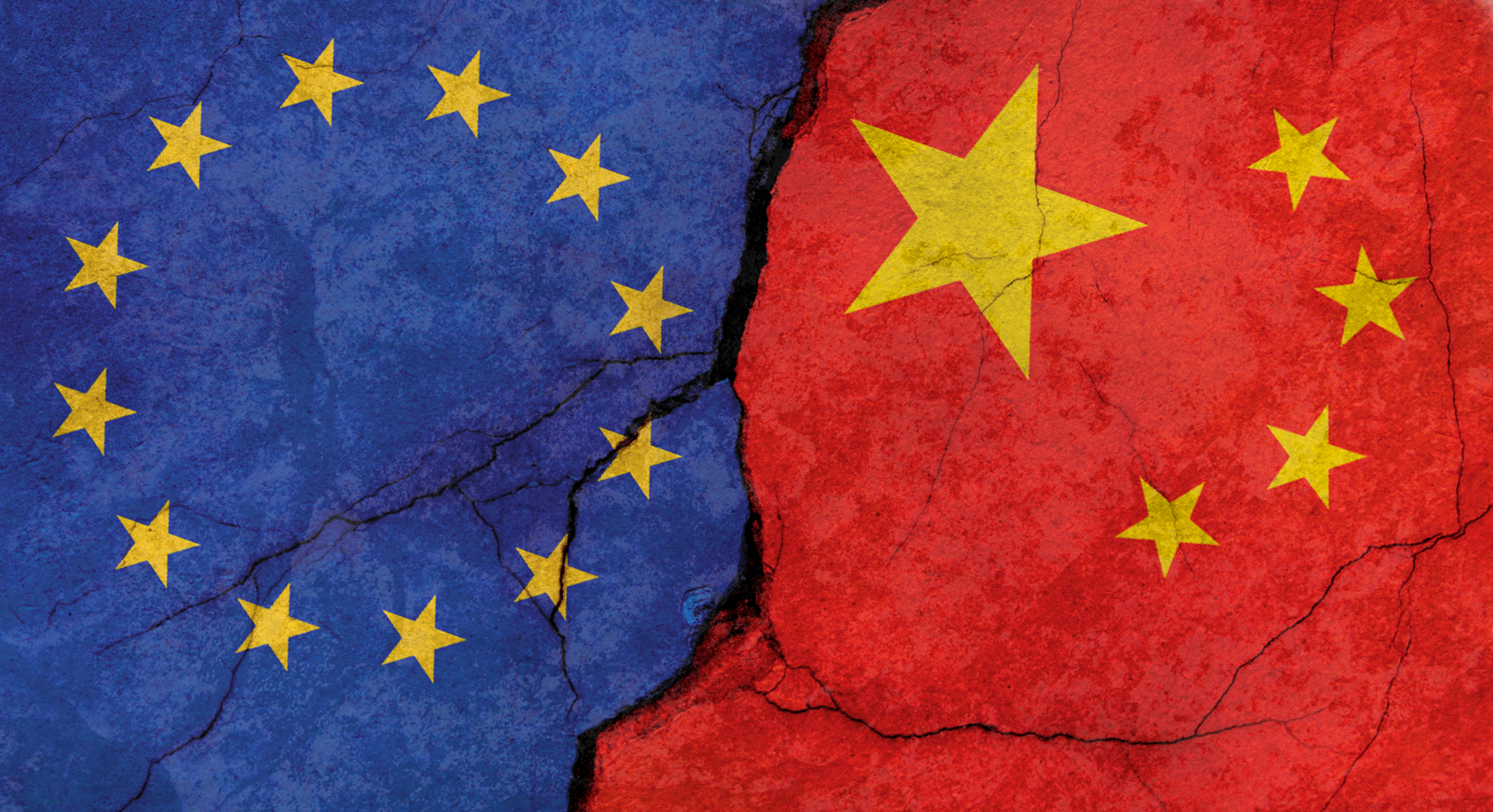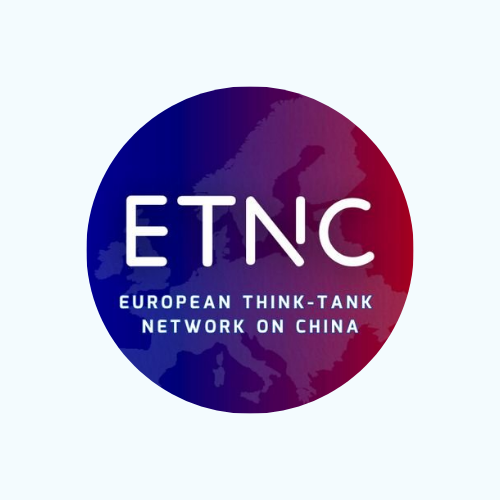National Perspectives on Europe's De-risking from China

The concept of “de-risking” has become a significant focus for the European Union (EU) in managing its relations with China since first proposed by European Commission President Ursula von der Leyen in March 2023. However, the interpretation and policy responses to de-risking vary across Europe, reflecting diverse national perspectives.

This year’s report from the European Think-tank Network on China (ETNC), of which Ifri is a co-founding member, examines how 21 EU member states and the United Kingdom view and approach de-risking within their national contexts, including practical steps they have taken towards the enforcement of this much talked-about policy.
The report highlights the diversity of national approaches to Europe’s de-risking agenda. It showcases countries’ internal debates (or lack thereof); highlights common concerns and risks associated with China; tracks de-risking measures adopted at national level and discusses potential barriers to Europe’s de-risking from China. Instead of a uniform and consistent implementation of EU policy, the situation more closely resembles a game of Broken Telephone with each country following its own interpretation and approach. The report offers a mapping of these national perspectives, grouping the countries into Early Advocates, Endorsers/Followers, Cautious Adopters, and Opponents.
France: Chinese undertones in a broader quest for economic security
In the report, Ifri's John Seaman explains that France is a proponent of “de-risking” both as a way to hedge against a slide towards deeper decoupling from China and as part of a broader approach to bolstering economic security and achieving greater economic sovereignty for the EU. As such, France is considered an "early advocate" of a de-risking approach in that Paris was functionally a proactive supporter of it even before it became a guiding concept for the European Commission. Indeed, China’s growing economic clout and ambitions are a source of concern for the French authorities and French firms alike. However, they are one concern among many as power politics increasingly undermines the pillars of a more liberal economic rules-based order. In practice, at the national and European levels, France has actively pursued the development of offensive industrial policy tools to boost economic competence and resilience, as well as defensive measures to protect critical infrastructure and strategic economic assets and guard against the leakage of key technology and know-how. While such policies are considered necessary, it has also sought to avoid directly antagonising Beijing in the process.
Discover this and all ETNC reports on the network's website: https://etnc.info/

Available in:
Regions and themes
Share
Download the full analysis
This page contains only a summary of our work. If you would like to have access to all the information from our research on the subject, you can download the full version in PDF format.
National Perspectives on Europe's De-risking from China
Related centers and programs
Discover our other research centers and programsFind out more
Discover all our analysesThe U.S. Policy Toward Taiwan Beyond Donald Trump: Mapping the American Stakeholders of U.S.-Taiwan Relations
Donald Trump’s return to the White House reintroduced acute uncertainty into the security commitment of the United States (U.S.) to Taiwan. Unlike President Joe Biden, who repeatedly stated the determination to defend Taiwan, President Trump refrains from commenting on the hypothetical U.S. response in the context of a cross-Strait crisis.

China’s Strategy Toward Pacific Island countries: Countering Taiwan and Western Influence
Over the past decade, China has deployed a diplomatic strategy toward the Pacific Island Countries (PICs). This strategy pursues two main objectives: countering Taiwan's diplomatic influence in the region and countering the influence of liberal democracies in what Beijing refers to as the "Global South."

Opening up the G7 to South Korea to Address Contemporary Global Challenges
The G7’s global influence has diminished as powers like China reshape international governance through initiatives such as BRICS and the Shanghai Cooperation Organisation (SCO). With the G7 now representing just 10 per cent of the world’s population and 28 per cent of global GDP, its relevance is increasingly questioned.
Expanding SPDMM as a pivotal institution in the Pacific – A French perspective
The South Pacific Defence Ministers’ Meeting (SPDMM) is the only forum that brings together defense ministers from the wider South Pacific — including Chile, which is hosting it for the first time. This heterogeneous group of countries with varying resources, capacities, and interests — Australia, Chile, Fiji, France, New Zealand, Papua New Guinea (PNG), and Tonga — are united by their shared determination to strengthen cooperation on maritime security and humanitarian assistance and disaster relief (HADR) activities.










